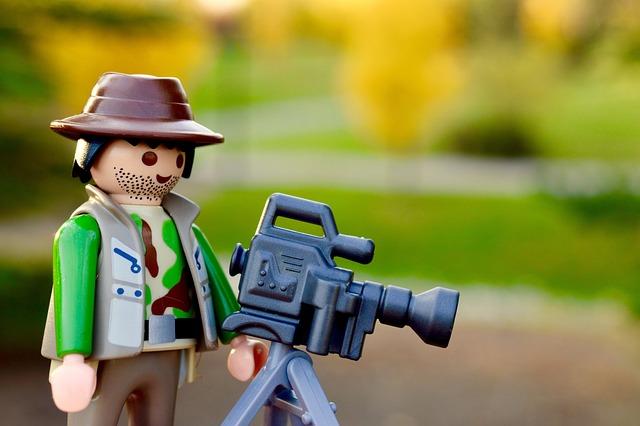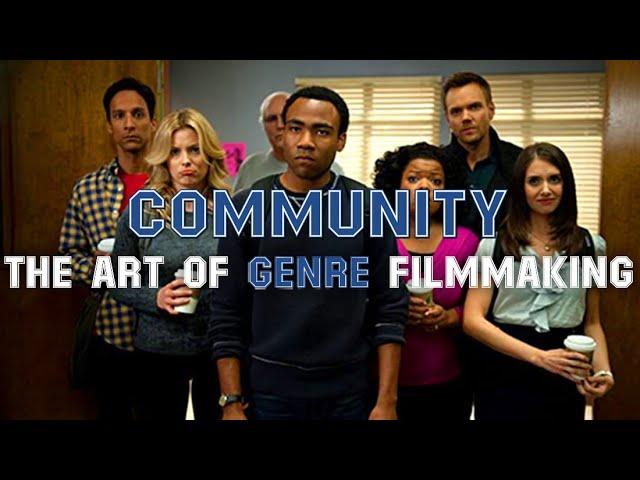In the ever-evolving landscape of cinema, certain filmmakers have emerged as pivotal forces, redefining genre filmmaking with their innovative visions and distinctive styles. These auteurs have not only challenged conventional narratives but have also reshaped audience expectations, leaving an indelible mark on the art of storytelling. By dissecting the contributions of these iconic directors, we gain insight into how they transformed genres—be it through groundbreaking techniques, thematic depth, or cultural impact. This exploration highlights the mastery and audacity required to transcend traditional boundaries, ultimately setting new standards and inspiring future generations of filmmakers.
Visionary Directors and Their Impact on Genre Evolution
Throughout the history of cinema, certain directors have transcended traditional boundaries, infusing their unique vision into established genres and, in doing so, reshaping them. These visionary filmmakers have not only defined their own careers but have also influenced the entire industry. Their work often challenges audiences’ expectations, offering fresh perspectives and innovative storytelling techniques.
- Alfred Hitchcock: Known as the “Master of Suspense,” Hitchcock revolutionized the thriller genre by blending psychological depth with groundbreaking technical innovations. His films, like Psycho and Vertigo, continue to influence contemporary suspense narratives.
- Stanley Kubrick: With an unparalleled ability to traverse genres, Kubrick left an indelible mark on science fiction with 2001: A Space Odyssey and horror with The Shining. His meticulous attention to detail and thematic complexity set new standards for genre filmmaking.
- Quentin Tarantino: Renowned for his dialogue-driven storytelling and non-linear narratives, Tarantino redefined crime and action genres. Films like Pulp Fiction and Kill Bill showcase his ability to blend homage with originality, creating a unique cinematic language.
These directors exemplify how individual creativity can redefine and expand the possibilities of genre filmmaking, leaving a lasting legacy that inspires future generations of filmmakers.
Innovative Techniques That Transformed Cinematic Narratives
In the ever-evolving world of cinema, certain filmmakers have employed innovative techniques that have significantly reshaped the landscape of genre filmmaking. These creative pioneers pushed boundaries and redefined how stories are told on screen, leaving an indelible mark on cinematic narratives. Their groundbreaking approaches have not only captivated audiences but also influenced countless directors and storytellers.
- Quentin Tarantino: Known for his nonlinear storytelling and eclectic dialogue, Tarantino’s films, such as Pulp Fiction, have challenged traditional narrative structures, blending multiple timelines and perspectives.
- Christopher Nolan: With a penchant for intricate plots and time manipulation, Nolan’s works like Inception and Memento have transformed the thriller genre, creating immersive and thought-provoking experiences.
- Alfred Hitchcock: The master of suspense, Hitchcock utilized innovative camera techniques and psychological tension, crafting films that have become the blueprint for modern thrillers.
These directors, among others, have reimagined the possibilities of storytelling in film, proving that innovation is the heartbeat of cinematic evolution.

Analyzing the Legacy of Genre-Defining Films
When we explore the impact of genre-defining films, the indelible marks left by iconic filmmakers become evident. These visionaries not only challenged the status quo but also transformed cinematic landscapes, setting new standards for storytelling and visual aesthetics. Their works have become touchstones, influencing countless directors and inspiring entire movements within the industry.
- Alfred Hitchcock: Known as the “Master of Suspense,” Hitchcock’s revolutionary techniques in psychological thrillers have made him a benchmark in the genre. His ability to weave tension and intrigue has paved the way for future filmmakers to explore complex narratives.
- Stanley Kubrick: With an unparalleled versatility across genres, Kubrick’s meticulous attention to detail and innovative storytelling have redefined science fiction, horror, and beyond. His films continue to provoke thought and discussion, exemplifying the profound impact of auteur cinema.
- Quentin Tarantino: By blending genres with his signature style, Tarantino has reshaped modern cinema. His eclectic use of dialogue, non-linear storytelling, and homage to classic film elements have made his works iconic, pushing the boundaries of genre conventions.
These filmmakers have not only left a lasting legacy but also continue to influence contemporary directors, ensuring that their pioneering spirit endures in the evolving world of cinema.

Recommendations for Exploring Genre Masterpieces
- Stanley Kubrick: Known for his meticulous craftsmanship, Kubrick’s work spans multiple genres, each film a unique exploration. Dive into 2001: A Space Odyssey for a revolutionary sci-fi experience that redefined visual storytelling. For a chilling foray into horror, The Shining remains a masterclass in atmospheric tension.
- Alfred Hitchcock: Often hailed as the “Master of Suspense,” Hitchcock’s thrillers are essential viewing. Psycho broke new ground with its narrative structure and psychological depth, while Rear Window offers an ingenious study in voyeurism and suspense.
- Quentin Tarantino: Tarantino’s eclectic style revitalizes genre conventions with a modern twist. Pulp Fiction interweaves multiple narratives with sharp dialogue and dark humor, redefining crime drama. His homage to martial arts, Kill Bill, blends action with striking visual flair.
These directors not only pushed the boundaries of genre filmmaking but also inspired countless others to innovate and experiment. Their masterpieces remain benchmarks for any enthusiast eager to explore the transformative power of cinema.

